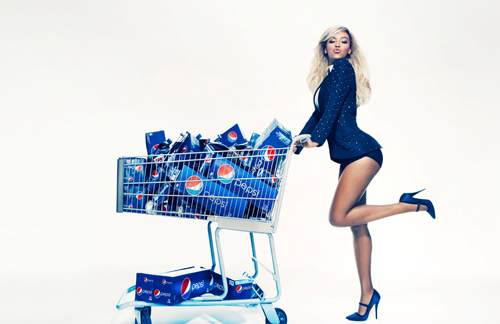In what many considered a lackluster second inauguration of President Barack Obama—with nary a glimpse of the magic that hung in the air four years ago—one bright spot was Beyonce Knowles’ rendition of “The Star-Spangled Banner.” Of course, it’s now widely speculated that she lip-synched the whole thing, but, really, who cares? We all know she could sing the alphabet and we’d be gobsmacked.
The problem with blaming Beyonce

In what many considered a lackluster second inauguration of President Barack Obama—with nary a glimpse of the magic that hung in the air four years ago—one bright spot was Beyonce Knowles’ rendition of “The Star-Spangled Banner.” Of course, it’s now widely speculated that she lip-synched the whole thing, but, really, who cares? We all know she could sing the alphabet and we’d be gobsmacked.
Live or not, her performance was an indelible moment of the ceremony. It was a performance that seared the administration’s conscience, according to a petition on the White House’s We the People website that requested Knowles be “disinvited” from singing.
Laurie David, author of said petition, pointed to the singer’s recent $50 million Pepsi contract as the problem. In a piece for The Huffington Post, she wrote: “Beyonce’s Pepsi deal was a serious lapse of judgment. And the White House tarnishes its own ‘brand’ by unwittingly boosting the beverage industry.”
What’s all the fuss about?
Beyonce has long been associated with First Lady Michelle Obama’s “Let’s Move!” campaign against childhood obesity, even performing in a dance video to a song with the same name. David suggested that Beyonce’s Pepsi deal was incongruent with her ties to this campaign, and she called for the White House to “end the hypocrisy, admit the mistake, move Beyonce from the lineup to the guest list and replace her with someone who’s not affiliated with any product that’s sickening millions of America’s kids.”
I’m all for child health. Our country has a serious problem, and those being diagnosed with obesity are getting staggeringly younger every year. If, however, we believe that by slinging mud at the name and reputation of a singer is getting to the root of the issue, we have an even bigger problem.
Beyonce is not to blame for the fact that childhood obesity has tripled in the last 30 years and that, according to the Centers for Disease Control and Prevention, one in three American children were obese in 2008. At the core of these horrific numbers are the eating and exercising habits of youngsters, and last time I checked, the singer was not involved in those decisions.
I am by no means suggesting that the issue of obesity is a one-dimensional problem. There are numerous factors affecting children’s diet and exercise—income levels, proximity and access to healthy food and recreational facilities, genetics, school budgets and mental health. Those probably only scratch the surface. It’d be naive to suggest that prevalent marketing for junk food and soda doesn’t belong on that list.
There isn’t a doubt that children are susceptible to advertising, and seeing
Beyonce drink a Pepsi might very well encourage them to do the same. However, focusing all the responsibility and power on one celebrity sends a dangerous message. It says that children are helpless pawns in a game with marketing giants. It suggests they can’t be taught to make healthy decisions in the face of temptation, that someone else dictates their ability to choose.
Our children need to know it will always be a fight, and that it won’t be easy. There will always be the proverbial carrot dangling in front of them—except it’s a
doughnut. The war for their lives is just that. But it’s a war worth waging.
The sooner we teach them that decisions about food have a direct effect on their health and that the power to make those healthy choices lies within them, the better. The more empowered they become, the greater the chances that they’ll make those decisions for themselves for the rest of their lives.
If we suggest, as David has, that the problem comes from a celebrity in Hollywood, that the fault lies with someone else, then the implication is that the solution lies there, too. Out there. Why would children believe they can do anything about it?
They need to feel empowered, not victimized. They’ve got to believe that they have what it takes to make life-changing choices on their own behalf, not that the power over their bodies belongs to someone else.
It’s time they learned that it’s about them, their power. Their lives depend on it.
And, if we’re gonna bring Beyonce into it, how about “Run the World (Girls)”?





